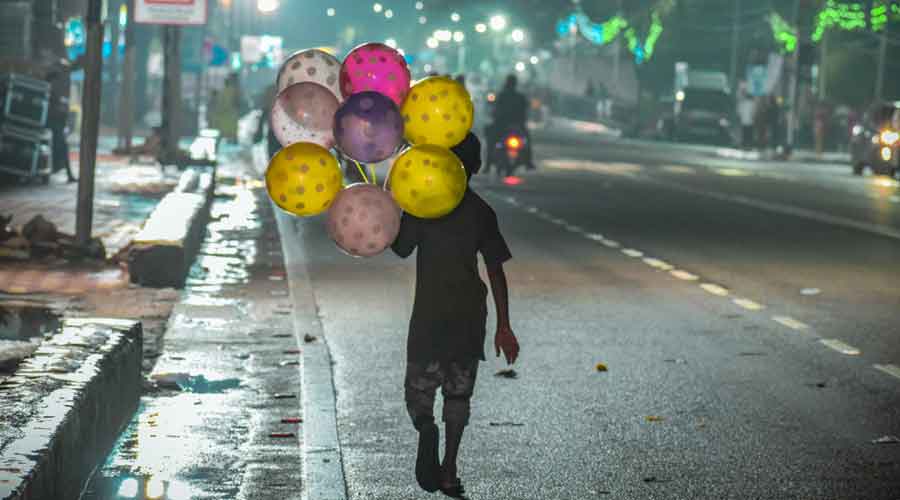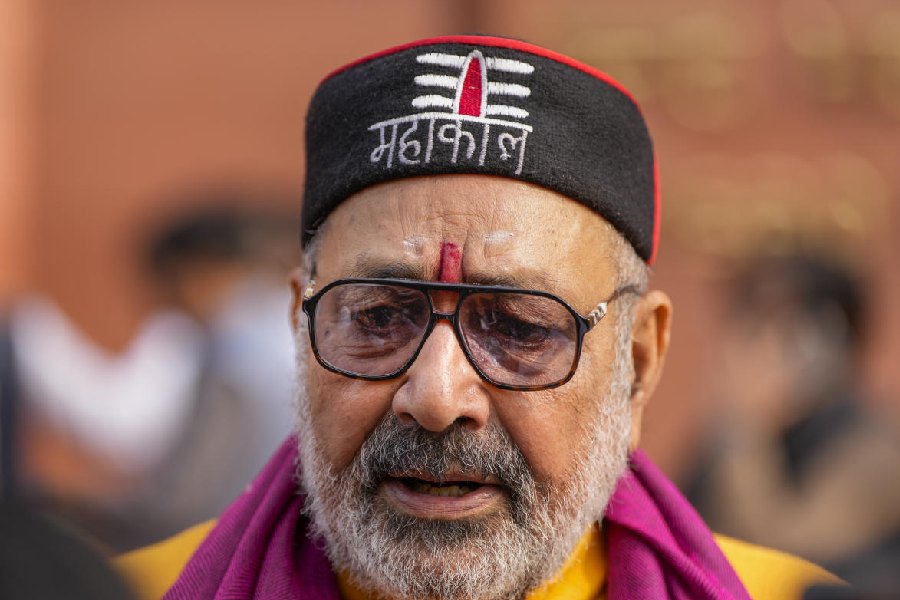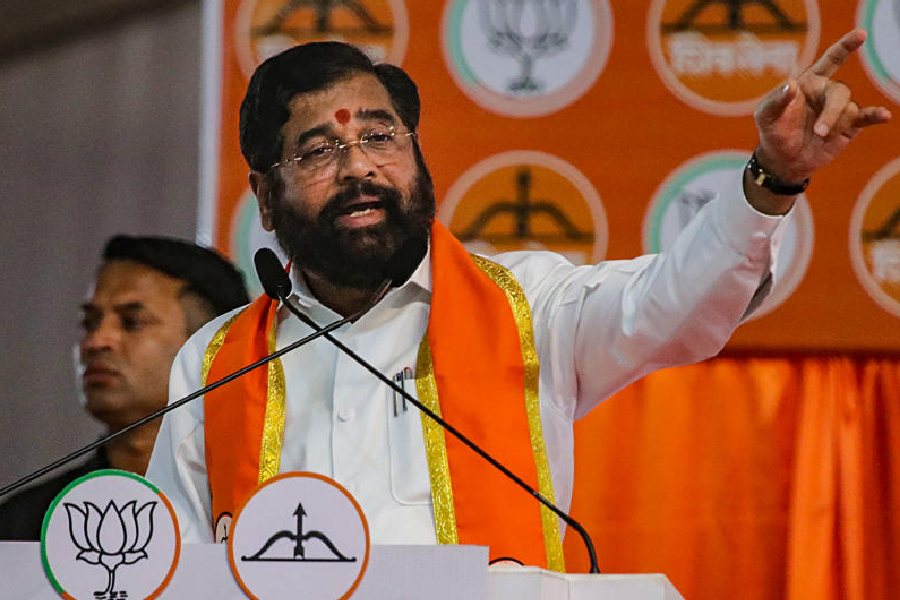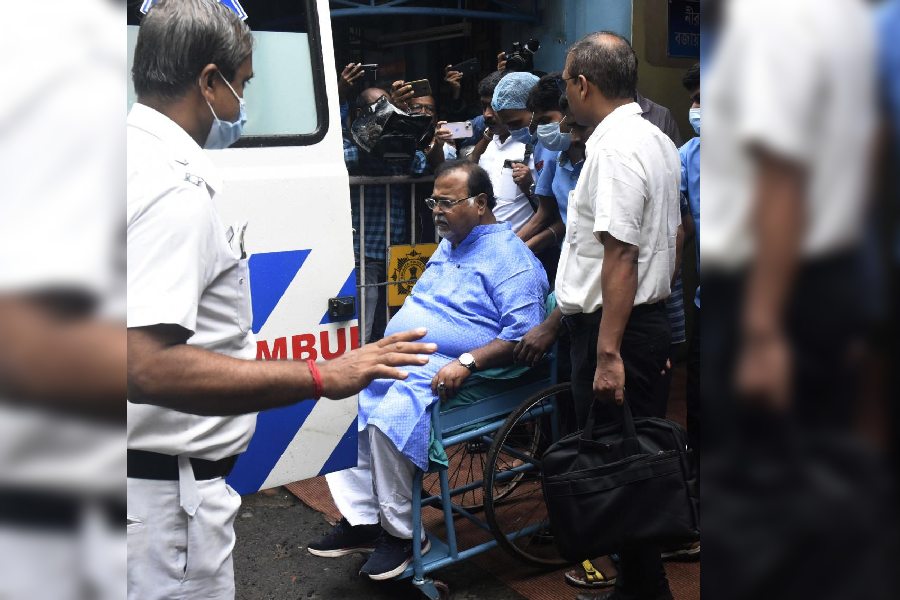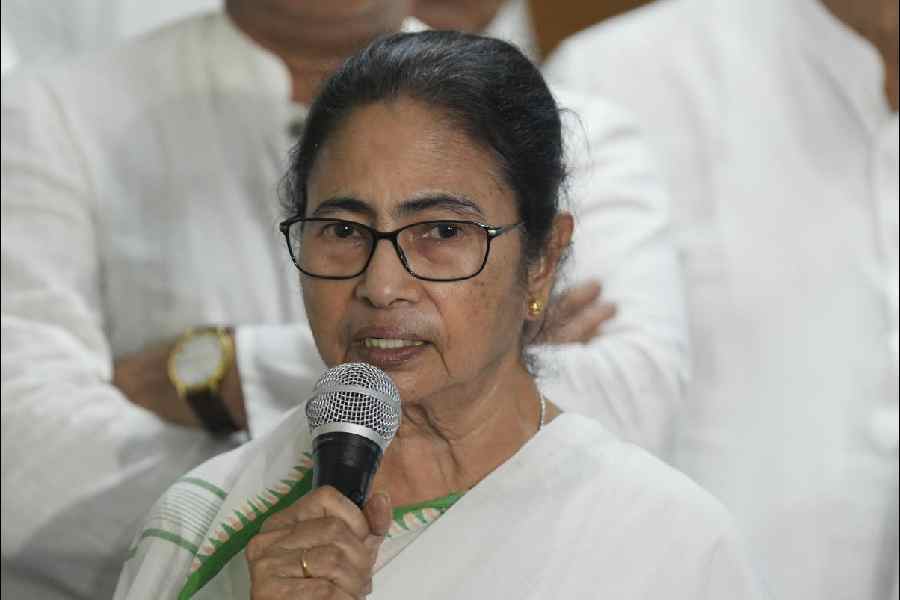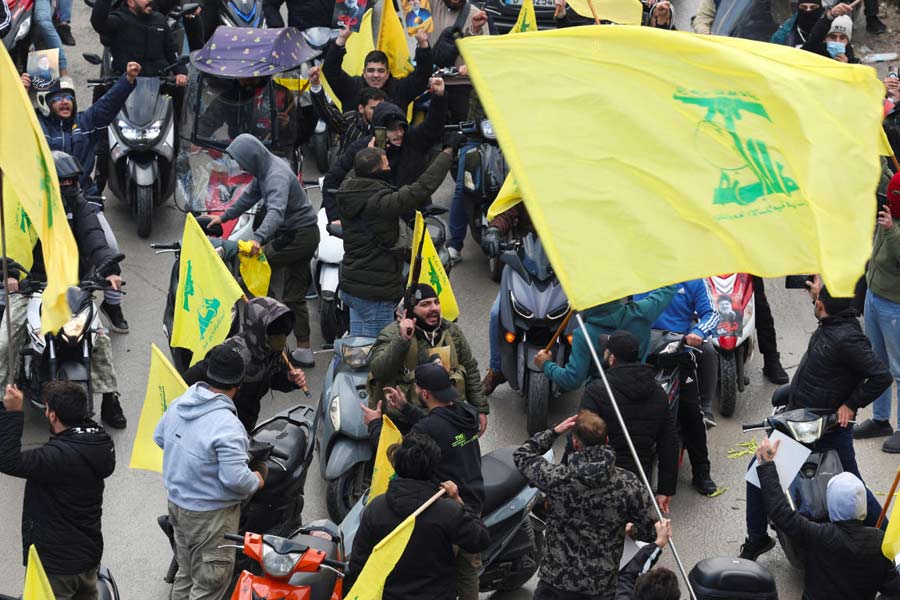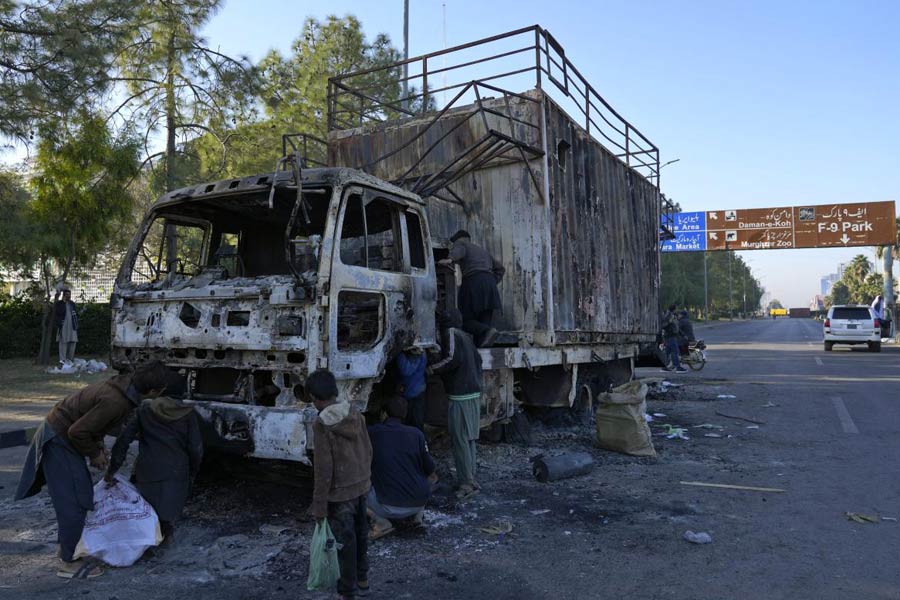A stack of unsold shawls is an unsettling sight for street vendor K. Kunjalata Devi, reminding her of the daily struggle to feed her family as Covid-19 threatens the livelihoods of millions of informal traders across India.
India — one of the countries worst-hit by the coronavirus — has eased most lockdown restrictions and sought to reopen its battered economy, but some curbs on street trade remain and many customers are staying away.
That is taking a heavy toll on the nation’s ubiquitous street vendors, who sell everything from snacks and cups of tea to toys and shoes at traffic lights, on pavements or from carts.
“Financially, we are shattered and that has led to a near mental breakdown with stress and tension building up every passing day,” said Devi, 64, who had been selling the handwoven shawls for four decades before the lockdown hit in March.
Devi and several thousand fellow vendors at a market run by women in Manipur have still not been able to return to their stalls because authorities ruled that the many elderly vendors were at high risk from the virus.
“Making ends meet and having two meals a day is now a big problem... life for many of us has been hell,” Devi, the sole breadwinner in her household, said by phone from the state capital, Imphal.
Coronavirus infections are rising faster in India than anywhere else in the world as it repeatedly reports the highest global daily caseloads, with the total surging to 5.4 million on Sunday, according to the latest official data.
It is the world’s second-worst affected country after the United States, which has 6.7 million cases.
‘Pocket change’
Imphal mayor L. Lokesore said the state government would provide Rs 10,000 in assistance to women like Devi.
“We have already processed their documents and very soon we shall release the payments,” he said.
In June, the Centre launched a scheme offering collateral-free loans of Rs 10,000 to about 5 million street vendors — about half of the country’s total, according to the National Association of Street Vendors of India.
Of 15 street vendors interviewed by the Thomson Reuters Foundation in New Delhi, only three said they had applied for the loan. Others said they did not plan to apply, citing reasons including red tape or lack of interest in the amount on offer.
“It’s a lot of effort for just pocket change. They don’t realise how much we have to spend on raw material, transport and helpers,” said Pappu Gupta, 50, who runs a food stall near Connaught Place, the capital’s central business district.
Nearby, roadside cobbler Santosh Kumar said: “What’s the point of a loan if people are too scared to come out? Who will I expand my business for?”
Calling street vendors an “inseparable constituent of the urban informal economy”, Rajeev Jain, a spokesman for the ministry of housing and urban affairs, said 470,000 loans had been approved of the 1.3 million applications received.
‘Fix the economy’
Ranjana, 38, used to sell thousands of rupees worth of colourful, hand-embroidered bags and cushion covers to foreign tourists before the lockdown.
Now, she gets two customers on a good day and has started wearing a face mask and using hand sanitiser, hoping that will convince buyers to come back. “People need to see that we’re the ones who can help fix the economy,” said Ranjana, who goes by one name. “If you buy from us, we can then spend money on artisans, rickshaw drivers, tea vendors... we can generate growth.”
Vinod, who declined to give his full name, said that in 30 years of selling tea in Delhi he had never struggled so badly. “There is no hope in sight.”

